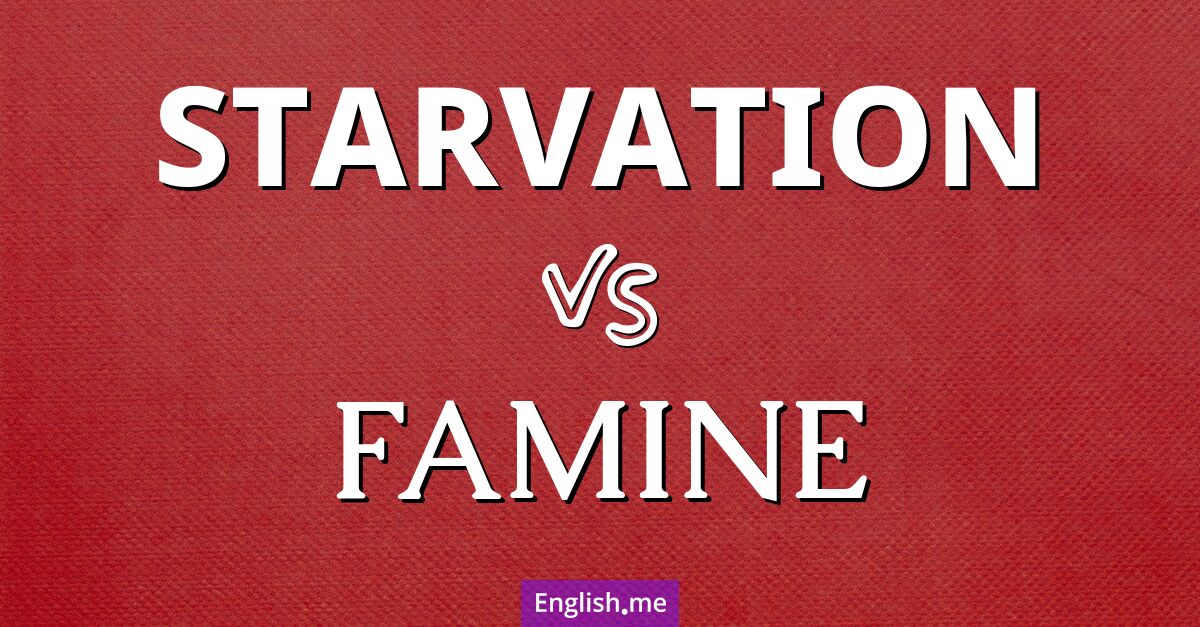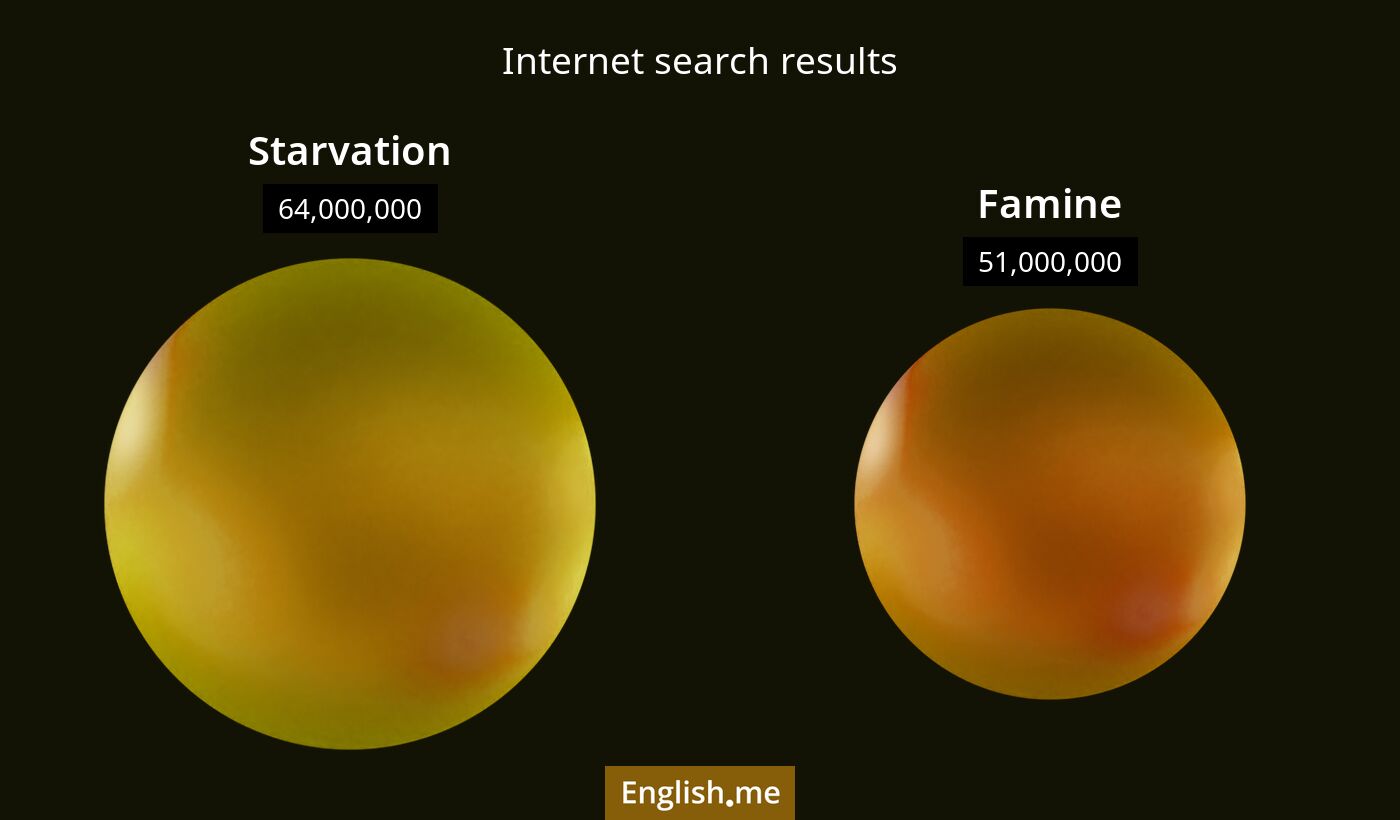"Starvation" vs. "famine": what's the difference?
Reviewed and edited by  Anwar Kareem 03/12/2024, 17:26
Anwar Kareem 03/12/2024, 17:26
English.me team member

 What is similar?
What is similar?
Both "starvation" and "famine" involve severe lack of food and can lead to malnutrition and death. They are associated with extreme hunger and are often linked to humanitarian crises.
 What is different?
What is different?
"Starvation" refers to the condition where individuals suffer or die from a lack of food. It describes the physical state of extreme hunger. "Famine" is a widespread scarcity of food affecting large populations over a region or country, often caused by factors like drought, war, or economic collapse.
 Which one is more common?
Which one is more common?

 Examples of usage
Examples of usage
Starvation- The stranded hikers faced starvation after running out of supplies.
- Starvation can cause irreversible damage to vital organs.
- Aid organizations are working to prevent starvation in the affected areas.
- The famine of 1845 led to mass emigration.
- International aid is crucial during times of famine.
- Crop failures have triggered a severe famine in the region.

 English
English español
español française
française italiano
italiano deutsche
deutsche 日本語
日本語 polski
polski česky
česky svenska
svenska Türkçe
Türkçe Nederlands
Nederlands